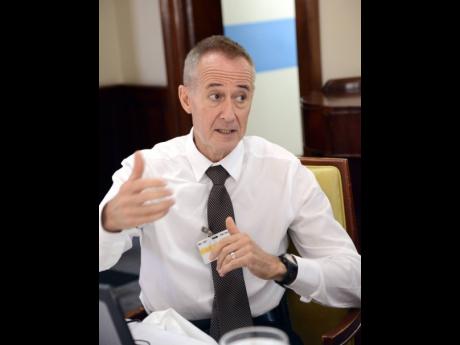Anthony Clayton appointed chairman of international science committee - Hopes to increase representation of Latin American, Caribbean and African scientists
Scientific and technical abilities of countries in North and South America, the Caribbean, and Africa could receive a major boost through the appointment of The University of the West Indies’ Professor Anthony Clayton as chairman of the Social and Economic Admissions Committee for the World Academy of Sciences.
The World Academy of Sciences, a merit-based science organisation, admits only the world’s highest-achieving scientists. Current membership comprises over 1,000 elected fellows from more than 100 countries globally. Fourteen Nobel laureates are among the group of distinguished research scientists.
Clayton has said that high on his agenda is a lobby for the entry of more scientists from Latin America, the Caribbean, and Africa into the academy.
“I now have the task of deciding who to admit to the academy, which is made of the world’s most prestigious scientists, who use science and technology as a way to support development of developing countries to find solutions to global problems like climate change and its impact on the poorer nations of the world,” said Clayton.
The professor of sustainable development told The Gleaner yesterday that he is “keen to encourage additional nominations and recruitment from Latin America and the Caribbean because the region is currently under-represented in the academy”. He noted that this was because the organisational skills of nations in the regions lacked strength.
BEHIND THE BALL
He pointed out that the regions highlighted are way behind the ball but far from irredeemable, alluding to China’s ascension to leadership in science despite its slow scientific development a few decades ago.
[The fact that we are behind] is very true. But between 1985 and 1995, China was way behind as well. India was way ahead. China is now a great power in science. We also can build that capacity, and the key to building that capacity is to start getting involved in the networks where scientific projects and concepts are developed. This is something I would love to see achieved in the Caribbean. Latin America [and] the Caribbean and Africa are two regions which have not been as effective in getting candidates put forward,” Clayton said.
“I would love to address that by encouraging more nominations into the academy. The more people we have in these scientific and research fora, the more opportunities there will be to get involved in big international research projects and consortia. Our ability to build a strong industrial and economic base is reduced if we don’t have a strong scientific and technical capacity, and the way to do that is to get involved in big global networks,” he stressed.

